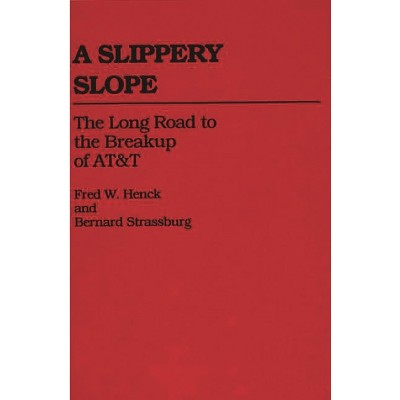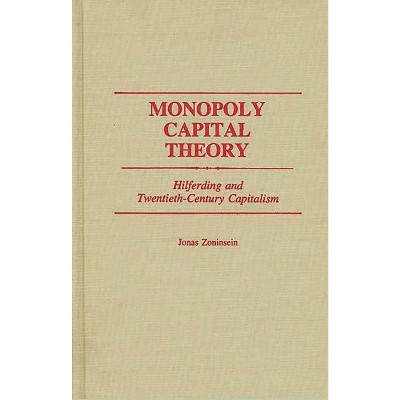Sponsored

The American Peasantry - (Contributions in Economics and Economic History) by Ronald E Seavoy (Hardcover)
In Stock
Sponsored
About this item
Highlights
- A sweeping overview of the American peasantry: the largely sharecrop cultivators who, in Seavoy's analysis, rejected the labor norms of commercial agriculture.
- About the Author: RONALD E. SEAVOY is with the Department of Business Economics and Public Policy, Kelley School of Business, Indiana University, Bloomington.
- 616 Pages
- History, United States
- Series Name: Contributions in Economics and Economic History
Description
About the Book
A sweeping overview of the American peasantry: the largely sharecrop cultivators who, in Seavoy's analysis, rejected the labor norms of commercial agriculture. About equal numbers of black and white sharecroppers chose to practice subsistence cultivation in order to minimize agricultural labor. The study begins with pre-Civil War slave plantations and the landless white peasants who migrated to North America to escape full-time paid labor in Britain. Seavoy then describes and analyzes the operation of the postbellum sharecrop system and related Back Caste System; the different origins of southern and northern Populism; the massive displacement of southern peasants (after 1950) when cotton cultivation was fully mechanized, and how the voluntary joblessness of the urban underclass has been perpetuated by the welfare entitlements of the Great Society.
Book Synopsis
A sweeping overview of the American peasantry: the largely sharecrop cultivators who, in Seavoy's analysis, rejected the labor norms of commercial agriculture. About equal numbers of black and white sharecroppers chose to practice subsistence cultivation in order to minimize agricultural labor. The study begins with pre-Civil War slave plantations and the landless white peasants who migrated to North America to escape full-time paid labor in Britain. Seavoy then describes and analyzes the operation of the postbellum sharecrop system and related Back Caste System; the different origins of southern and northern Populism; the massive displacement of southern peasants (after 1950) when cotton cultivation was fully mechanized, and how the voluntary joblessness of the urban underclass has been perpetuated by the welfare entitlements of the Great Society.Review Quotes
"Eugene Genovese's 1967 The Political Economy of Slavery: Studies in the Economy and Society of the Slave South established the historical benchmark for understanding the antebellum South. Now, Seavory adds new dimensions to this perception and other interpretations in The American Peasantry....[W]ill raise questions and many eyebrows among conventional scholars. Must reading for economists; economic, ethnic, social, and agricultural historians; and for those interested in southern Amerincana."-Choice
?[a]mbitious and provocative...?-Agricultural History
?Eugene Genovese's 1967 The Political Economy of Slavery: Studies in the Economy and Society of the Slave South established the historical benchmark for understanding the antebellum South. Now, Seavory adds new dimensions to this perception and other interpretations in The American Peasantry....[W]ill raise questions and many eyebrows among conventional scholars. Must reading for economists; economic, ethnic, social, and agricultural historians; and for those interested in southern Amerincana.?-Choice
?Ronald Seavoy has written a provocative book.?-The Journal of American History
?Seavory has given us a detailed analysis of Southern agricultural practices and productivity in the century following the Civil War.?-Labor History
?[a]mbitious and provocative...??Agricultural History
?Ronald Seavoy has written a provocative book.??The Journal of American History
"Ýa¨mbitious and provocative..."-Agricultural History
"[a]mbitious and provocative..."-Agricultural History
"Ronald Seavoy has written a provocative book."-The Journal of American History
"Seavory has given us a detailed analysis of Southern agricultural practices and productivity in the century following the Civil War."-Labor History
About the Author
RONALD E. SEAVOY is with the Department of Business Economics and Public Policy, Kelley School of Business, Indiana University, Bloomington. Previous books by the author include The Origins of the American Business Corporation, 1784-1855 (Greenwood, 1982), Famine in Peasant Societies (Greenwood, 1986), and Famine in East Africa (Greenwood, 1989).










